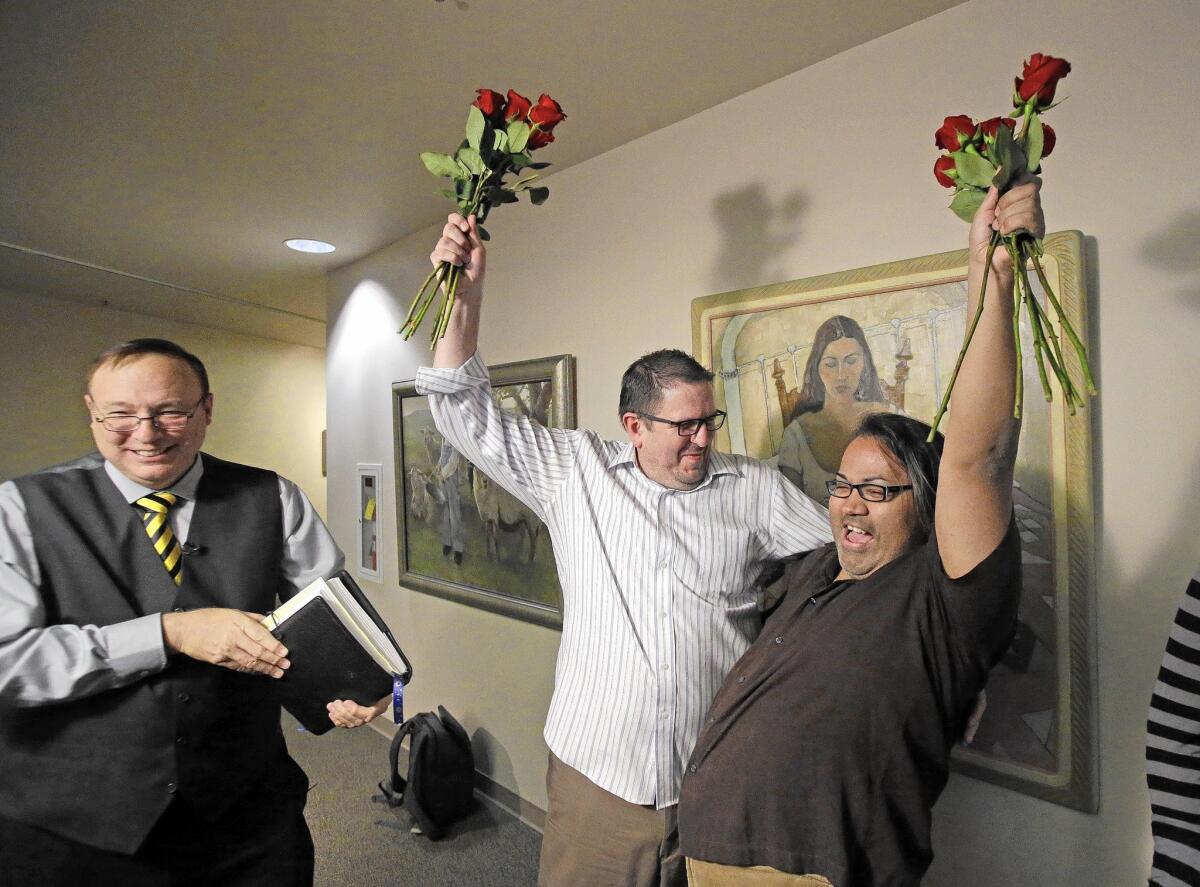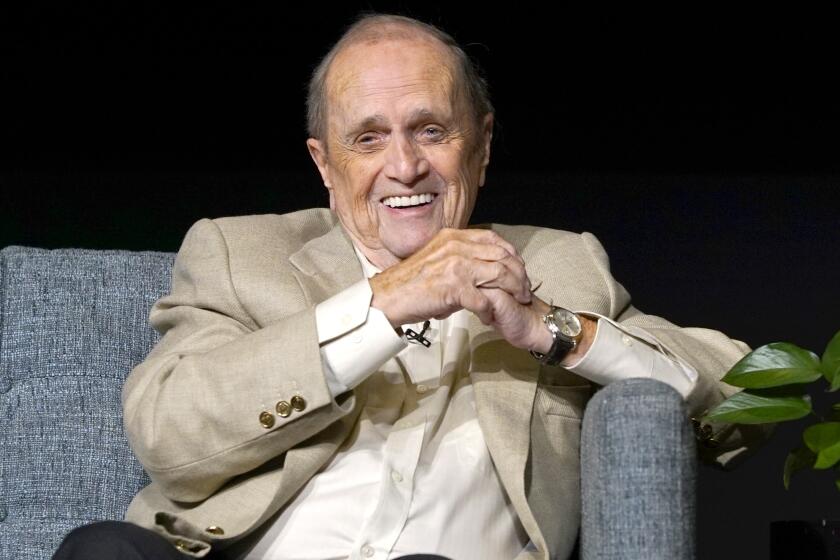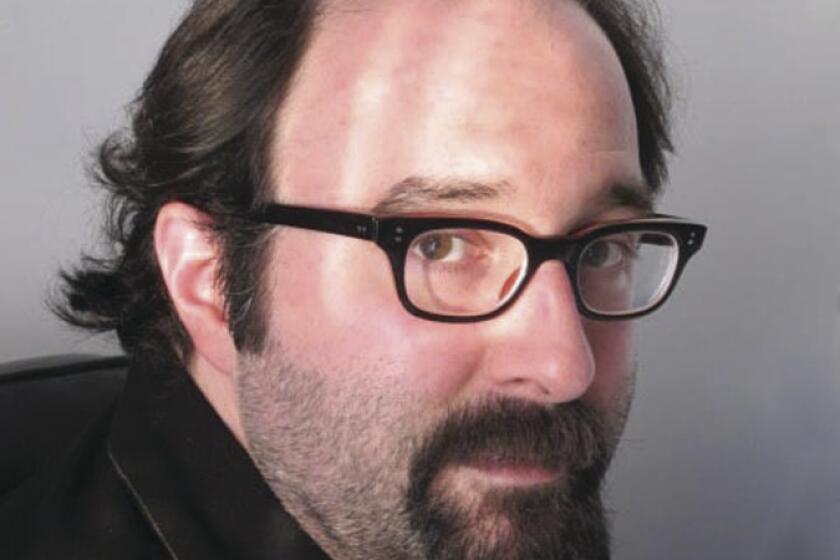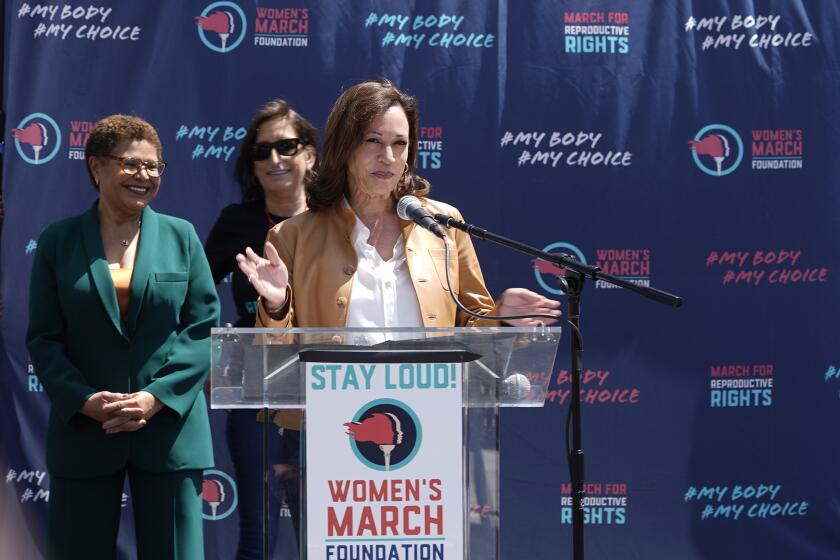Readers React: Gay marriage, courts and the ‘tyranny of the majority’

On a few hot-button topics, what draws the most spirited reader reactions are letters from other readers. On gun control, for example, letters calling for more restrictive firearms laws often provoke readers who disagree to pen point-by-point rebuttals.
So it goes with marriage. On Wednesday, we published a letter from Santa Barbara reader Nathan Post lamenting the U.S. Supreme Court’s decision to pass on appeals from states whose bans on same-sex marriages had been overturned in lower courts. Post decried what he called the judicial activism that nullified the votes of 7 million-plus Californians that enacted Proposition 8 and the wishes of residents in other states.
In response to Post, several readers wrote in defense of same-sex marriage. Here are some of their letters.
David Sears of Playa del Rey bemoans the “tyranny of the majority”:
I am sick of claims that the “will of the people” is being trampled by court decisions invalidating voter-approved bans on same-sex marriage. For gay people denied this basic right by popular vote, the will of the people becomes the tyranny of the majority, something our courts are supposed to guard against.
There is no legitimate reason to deny civil marriage rights to two same-sex adults. After all, the sky has remained firmly in place in countries and states that permit gay marriage, some of which have done so for considerable lengths of time with none of the dire consequences to society claimed by opponents.
Palm Desert resident Rebecca Hertsgaard talks disenfranchisement:
Post complained that an “overzealous judiciary” had effectively disenfranchised more than 7 million people. At least federal Judge Vaughn R. Walker, whose decision was beautifully rendered, had the ethical understanding and compassion that 7 million voters apparently did not.
I wonder if Post would feel “disenfranchised” if 7 million people voted to ban anyone named Nathan Post from marrying whomever he wished? Does he care about all the same-sex couples who were disenfranchised by those 7 million voters?
Our Constitution ostensibly grants equality to all. It appears, however, that, perhaps in Orwellian fashion, some people are more “equal” than others.
Roberta Quiroz of Los Angeles clarifies the judiciary’s role:
The responsibility of the Supreme Court is not to uphold the will of the people; it is to determine whether a law is constitutional.
Multiple state and federal courts have determined that same-sex couples are entitled to the same benefits of marriage as mixed-sex couples. This is the meaning of the 14th Amendment, which promises equal protection under the law. Laws banning same-sex marriage are against the U.S. Constitution, regardless of how people have voted.
It may be true, as Post says, that it would be better for social changes to come about at the ballot box. But that’s not what the Constitution calls for.
Follow the Opinion section on Twitter @latimesopinion
More to Read
A cure for the common opinion
Get thought-provoking perspectives with our weekly newsletter.
You may occasionally receive promotional content from the Los Angeles Times.







